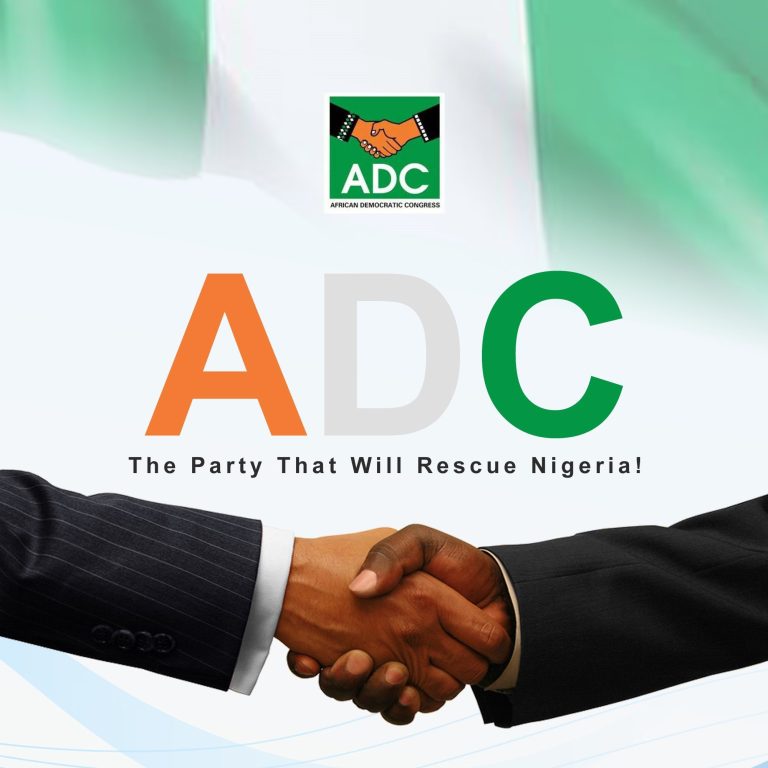Nigeria stands at a precipice. Two years under President Tinubu’s leadership have unleashed a torrent of suffering: inflation rages at 24%, over 10,217 lives have been lost to insecurity since 2023, and families are crushed under the weight of subsidy removals and a crippled naira. This isn’t mere misfortune—it’s the direct consequence of policies divorced from the people’s reality. Yet in this gathering darkness, a powerful force is emerging. The African Democratic Congress (ADC) has become the vessel for an unprecedented coalition of Nigeria’s most experienced leaders, united by one urgent mission: to rescue Nigeria in 2027.
The architects of change
This isn’t a recycling of tired faces—it’s a strategic convergence of Nigeria’s most formidable political minds. When former Senate President David Mark accepted the ADC’s interim chairmanship, he didn’t just take a title; he sounded a battle cry against what he called Tinubu’s “state capture” and Nigeria’s slide toward a “one-party dictatorship.” Beside him stands Rauf Aregbesola, the former Osun governor and Tinubu ally-turned-fierce critic, now serving as interim National Secretary. His vision is to build a party “grounded in ideology, not opportunism”—a direct challenge to Nigeria’s transactional politics.
The coalition’s strength lies in its geographic and ideological breadth. From the North, Aminu Tambuwal (former Sokoto governor and House Speaker) brings legislative mastery and grassroots networks critical to flipping the Northwest. Nasir El-Rufai, the controversial but effective former Kaduna governor, lends his hard-nosed approach to security governance, a top concern for voters. From the South, Peter Obi’s army of “Obidient” youth and Rotimi Amaechi’s Rivers political machinery merge with Kayode Fayemi’s intellectual heft and regional influence.
These aren’t just names on a press release. Amaechi and former Justice Minister Abubakar Malami have formally burned their APC membership cards, declaring the ruling party beyond redemption. When El-Rufai—once Buhari’s confidant—joins forces with Atiku’s PDP veterans and Obi’s progressive outsiders, it signals a tectonic shift in Nigerian politics.
Why this coalition can succeed where others failed
Past opposition alliances crumbled under ego and ambition. This coalition learned those lessons. Consider the math: Atiku’s 29% + Obi’s 25% in 2023 already exceeded Tinubu’s 37%. Now add El-Rufai’s northern strongholds, Aregbesola’s Southwest base, Tambuwal’s Sokoto fortress, and Fayemi’s Ekiti connections. This geographic mosaic covers Nigeria’s electoral map like never before.
Behind the scenes, pragmatic concessions are forging unity. ADC founder Ralph Nwosu voluntarily stepped aside for new leadership—a rare act of self-sacrifice in Nigerian politics. The party abolished its two-year membership rule, opening doors to fresh talent and defectors alike.
The path to 2027
This movement transcends politics—it’s a covenant with Nigeria’s future. From Sokoto’s ancient streets to Port Harcourt’s bustling markets, the call is clear.
Ralph Nwosu, the outgoing ADC chairman, said:
“We will look Nigerians in the face and say, ‘Enough is enough… The time has come for true leaders to step forward.’”
The coalition moment
Nigeria’s crisis demands more than one savior—it requires a team of its best minds: Tambuwal’s legislative acumen, Aregbesola’s administrative rigor, Obi’s youth energy, El-Rufai’s security focus, and Fayemi’s intellectual depth. Together, they form the most capable government-in-waiting Nigeria has seen.
The 2027 election isn’t just about replacing Tinubu—it’s about choosing between four more years of “Renewed Pain” or a united government ready to deliver Renewed Hope Through Collective Leadership.
The coalition is built. The time is now.
By Akibu Dalhatu, a pro-democracy advocate based in Sokoto.


